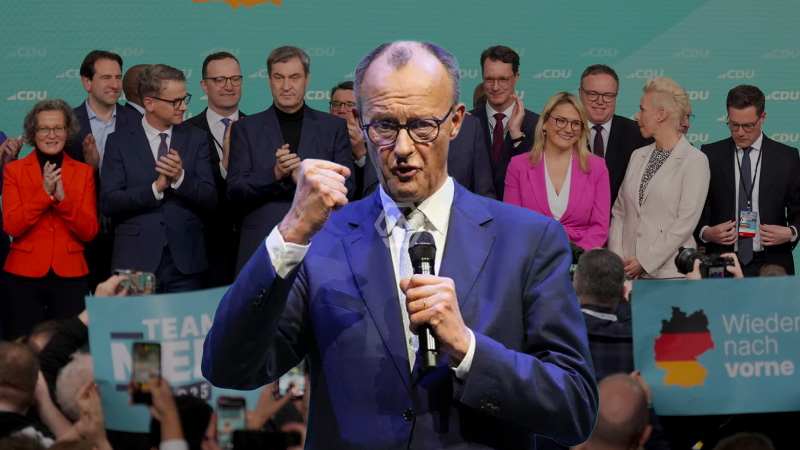- Friedrich Merz fails to secure the required majority in Germany’s Bundestag to become chancellor.
- His CDU/CSU coalition with the SPD holds a slim majority of just 328 seats.
- Bundestag has 14 days to hold another vote or propose an alternative candidate.
In a surprising turn, Friedrich Merz, leader of Germany’s conservative CDU/CSU alliance, failed to gain the 316 votes needed in parliament to officially become chancellor.
This parliamentary defeat comes after months of political uncertainty following the federal elections. The Merz-SPD coalition, though technically holding a majority, must now grapple with internal discipline and public confidence.
Germany’s Political Gridlock Persists as Merz Stumbles in Chancellor Vote
Friedrich Merz’s failure to secure the chancellorship on his first attempt highlights a shaky start for Germany’s newly formed coalition. Though his CDU/CSU bloc won the most votes in February’s federal election, forming a government with the SPD was always going to be a challenge given the SPD’s historically low support.
The coalition’s slim 328-seat majority leaves little room for error, and Merz’s inability to secure six crucial votes underscores internal divisions or wavering confidence among lawmakers. Bundestag President Julia Kloeckner’s decision to suspend the session allows time for party negotiations to regroup and strategize for another vote.
Merz’s policy platform emphasizes infrastructure renewal, tighter immigration controls, and stronger European alliances. His push to exempt defense spending from Germany’s debt limits already signaled a willingness to act decisively—perhaps too quickly for some in his fragile coalition.
With far-right momentum growing and Germany’s economy in flux, Merz faces a challenging path forward. Even if elected in a second or third round, his leadership will depend on coalition unity and swift delivery on campaign promises.
Friedrich Merz’s failure to secure a majority on his first attempt reflects the fragility of Germany’s current political landscape, where leadership now demands both strategy and steadfast coalition cohesion.
“It’s our historical duty to make this government a success.” – Friedrich Merz



